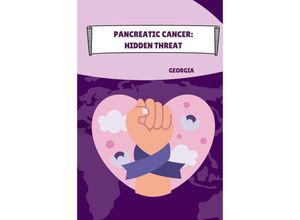Pancreatic cancer casts a long shadow. It's a foe with a chilling reputation earning the title
deadly and difficult. This moniker reflects the sobering reality of the disease.Pancreatic
cancer's deadliness stems from its stealthy nature. Early symptoms are often vague mimicking
common ailments like indigestion or fatigue. By the time more pronounced signs appear the
cancer may have already advanced. This delays diagnosis making treatment more challenging.The
difficult aspect refers to the complexities of treating pancreatic cancer. The pancreas sits
deep within the abdomen surrounded by vital organs. This limits surgical options a mainstay
in cancer treatment. Additionally pancreatic tumors tend to be resistant to traditional
chemotherapy and radiation.However this isn't a story without hope. Research is relentless
with new treatment options emerging. Targeted therapies and immunotherapy offer promise for
improved outcomes. Early detection efforts are also underway aiming to identify the disease
before it gains a foothold.While pancreatic cancer remains a formidable foe the fight against
it continues. With ongoing research and a focus on early detection the tides may begin to turn
offering a brighter future for patients



